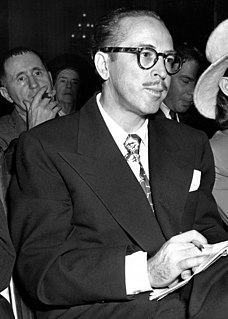A Quote by Henry David Thoreau
He who parades his virtues seldom leads the parade. He who puts up with insult invites injury. Health requires this relaxation, this aimless life. This life in the present.
Related Quotes
Bad habits are easy and discipline is hard-and “easy” is where people gravitate. A good work ethic requires a painstaking daily effort. Easy typically leads to a life long list of problems but the discipline of having a plan leads to an extraordinary rewarding life. In the long run, the easy way makes life harder and the harder way makes life easier.
A man never is happy, but spends his whole life in striving after something which he thinks will make him so; he seldom attains his goal, and when he does, it is only to be disappointed; he is mostly shipwrecked in the end, and comes into harbor with mast and rigging gone. And then, it is all one whether he has been happy or miserable; for his life was never anything more than a present moment always vanishing; and now it is over.
The orator, who may be silent without danger, may praise without difficulty and without reluctance; and posterity will confess that the character of Theodosius might furnish the subject of a sincere and ample panegyric. The wisdom of his laws and the success of his arms rendered his administration respectable in the eyes both of his subjects and of his enemies. He loved and practised the virtues of domestic life, which seldom hold their residence in the palaces of kings.
Give up salt, give up sugar, give up spices, give up vegetables, give up chutnies, give up tamarind. Serve Bhangis, serve rogues, serve inferiors, remove faecal matter. Do not revenge, resist not evil, return good for evil, bear insult and injury. Forget like a child any injury done by somebody immediately. Never keep it in the heart. It kindles hatred.
It seldom happens that a man changes his life through his habitual reasoning. No matter how fully he may sense the new plans and aims revealed to him by reason, he continues to plod along in old paths until his life becomes frustrating and unbearable-he finally makes the change only when his usual life can no longer be tolerated.
While we pay lip service to the virtues of reading, the truth is that there is still in our culture something that suspects those who read too much, whatever reading too much means, of being lazy, aimless dreamers, people who need to grow up and come outside to where real life is, who think themselves superior in their separateness.
By the consultation of books, whether of dead or living authors, many temptations to petulance and opposition, which occur in oral conferences, are avoided. An author cannot obtrude his service unasked, nor can be often suspected of any malignant intention to insult his readers with his knowledge or his wit. Yet so prevalent is the habit of comparing ourselves with others, while they remain within the reach of our passions, that books are seldom read with complete impartiality, but by those from whom the writer is placed at such a distance that his life or death is indifferent.

































